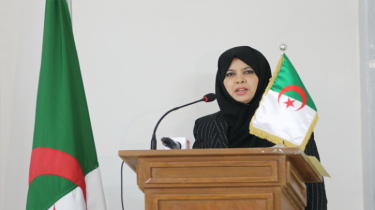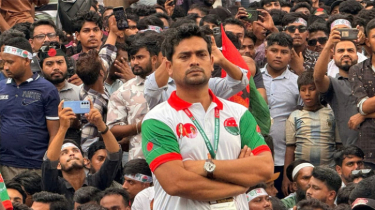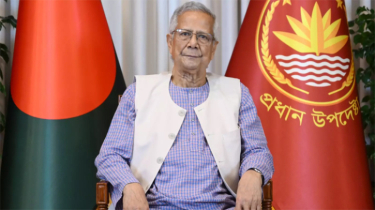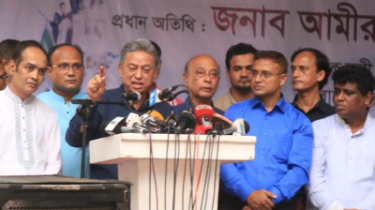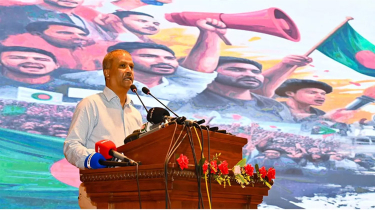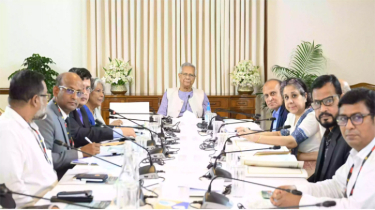A City Gasps, a Park Resists: Panthakunja Protest Redefines Civic Action in Dhaka
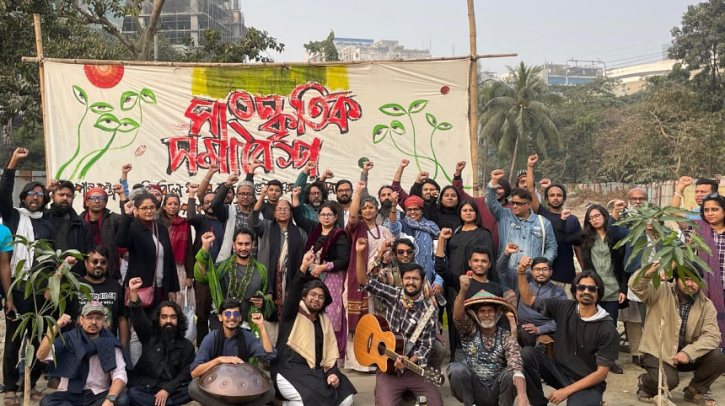
Published : 23:40, 15 July 2025
On a damp afternoon in Dhaka, where traffic fumes mix with the clamor of relentless construction, a quiet yet powerful protest continues at Panthakunja Park. There are no road blockades, no fiery slogans—just guitars, paintbrushes, puppet shows, and poetry. For over six months, artists, writers, urban planners, and concerned citizens have transformed this endangered green space into a stage for cultural resistance. More than 45 public events have taken place at the park—sports, music recitals, street plays, film screenings, environmental talks, children's art workshops, and even medical camps. These are not just performances but tools to raise public awareness and demand accountability from city authorities. “This is not only about trees,” said Amirul Rajiv, coordinator of the Bangladesh Tree Protection Movement. “It’s about memory, air, childhood, biodiversity. It’s about saving the soul of Dhaka.” Located on Sonargaon Road, Panthakunja was once a lush urban oasis. Rich with native trees, birds, and daily visitors, it stood as
a rare pocket of calm in the heart of the capital. But years of neglect and development projects have taken their toll. First came high walls under a so-called beautification initiative by Dhaka South City Corporation. Then came the Dhaka Elevated Expressway, which now occupies over two-thirds of the park. Where greenery once thrived, now lie empty pits, concrete piles, and an abandoned boring machine. But the protestors have repurposed the space with murals, sculptures, tents, and a makeshift cultural stage. Environmentalists estimate that more than 2,000 trees were felled in Panthakunja and Dhanmondi last year alone—part of a larger count of over 4,200 trees across Dhaka. Activists claim construction at Panthakunja continues without valid environmental clearance, as the original permit expired in December 2023 and has not been renewed. Despite these violations, government response has been limited. In December, three government advisers visited the site, acknowledged concerns, but offered no commitments. Still,
the protest goes on. Weekly cultural programs now draw in families, students, and passersby. “Children call this the camp where the tree people sing,” one volunteer shared. Rajiv said the protest was rooted in common sense and civic responsibility. “Dhaka ranks among the most climate-vulnerable cities in the world, yet there’s little effort to preserve its parks or water bodies. DNCC has parks in only 16 of its 54 wards. DSCC has them in just 7 of 75—and even those are often misused or commercialized.” “We’re not just resisting tree-cutting,” Rajiv continued. “We’re defending the very elements that make a city livable. If a single bird finds shelter, or one child grows up breathing cleaner air because of this movement—that’s reason enough to continue.” Naim Ul Hasan, another coordinator of the movement, added, “We’ve tried to make this movement inclusive, open to people from all walks of life. Environmental issues impact us all, and policy-level discussions in Bangladesh are still in a primitive state. We want to trigger a more meaningful ecological conversation.” The movement has consciously avoided aggression. “We chose cultural resistance—over 45 creative events to reach people’s hearts, not just their minds,” Rajiv said. “This is not just a protest anymore. It’s becoming a full-fledged civic movement.” Meanwhile, contradictions remain. While the city corporation raised concerns about the expressway, it has also constructed a garbage transfer station and a public toilet inside the park. Various agencies and private companies have also laid claim to sections of the five-acre land. Wildlife, too, has suffered. “Birds were visibly disturbed after the
last round of tree-cutting in December,” Rajiv said. “They were here before us—they have as much right to this land.” On the 168th day of the sit-in, a public hearing was held where the protestors presented their case before a panel of prominent citizens, including Prof Giti Ara Nasreen, Prof Anu Muhammad, Dr Iftekharuzzaman, Jyotirmoy Barua, and Shamsi Ara Jaman. The panel called for a halt to the construction and urged authorities to reopen the park to the public. They also requested protestors to temporarily pause their sit-in. Even as monsoon clouds gather and the sit-in is paused, the cultural events continue—because, as protestors believe, the fight for a park is ultimately a fight for a livable future.
BD/S





